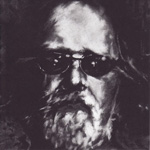|
|
 |
Dusted Reviews
Artist: Gary Higgins Album: Seconds Label: Drag City Review date: Sep. 28, 2009 |

|
|
|
 |
Like Gary Wilson and Vashti Bunyan before him, Gary Higgins has parlayed the “re-discovery” and success of a decades-old album (1973’s Red Hash, rereleased by Drag City in 2005) into the opportunity to record a belated follow up, the appropriately-titled Seconds. Given the 35-year hiatus, it should come as no surprise that Seconds is hardly Red Hash part two. The stoned blissfulness and warm psychedelia of that album is here replaced by a more grounded, if world-weary, brand of folk-rock, while the rich sounds of the 1970s analog studio are replaced by the rather tinny tones of DIY digital.
Upon first listen, the magic of Red Hash seems to have dissipated on Seconds as a result of the rather low-budget production, of which the album bears all of the hallmarks: the acoustic guitars (plugged-in rather than mic’d) are brittle and shrill, percussion is provided by drum machine, and strings by synthesizer. The music, meanwhile, seems rather anonymous. The primary style employed here is that of a tepid acoustic rock, with occasional forays into a more aggressive but all-too-mechanical blues rock (“Mister Blew,” “Don’t Wanna Lose”). Higgins’s quirkiness remains largely in the background, only fully surfacing on the synth-orchestral “Squirrel,” an ode to a dead rodent that displays far too much enthusiasm for lo-tech studio tricks (witness the vocal pitch-shifting employed throughout and the bizarre animal sounds at its conclusion).
Even with so many strikes against it, however, Seconds manages to be a surprisingly compelling listen. Despite the unpleasant production, Higgins succeeds in creating a consistent emotional tone: “Demons,” “Ten-Speed,” and “5 AM Trilogy” all convey a romantic melancholy that recalls Red Hash while introducing a wistful nostalgia befitting an older artist. There’s something in the unaffected, almost deadpan way that Higgins delivers his lyrics, particularly on the opener “Demons,” that signals an uncommon sincerity and emotional depth, an effortlessness that makes the unassumingness and understatedness of his music a strength rather than a weakness. The potentially cringe-inducing moments, such as the harpsichord break in “Demons” or the spoken-word intro to “Mister Blue,” come off not as the bloodless clichés they might be, but rather retain the force they still clearly possess for someone who doesn’t recognize them as clichés. In this sense, the album’s amateurishness (and it should be noted that as a guitarist, Higgins is hardly an amateur) proves its saving grace: whereas polished big-budget production might have reduced Seconds to bland and impersonal classic rock, its intimate and slightly awkward execution gives it a convincing emotional depth.
By Michael Cramer
|







